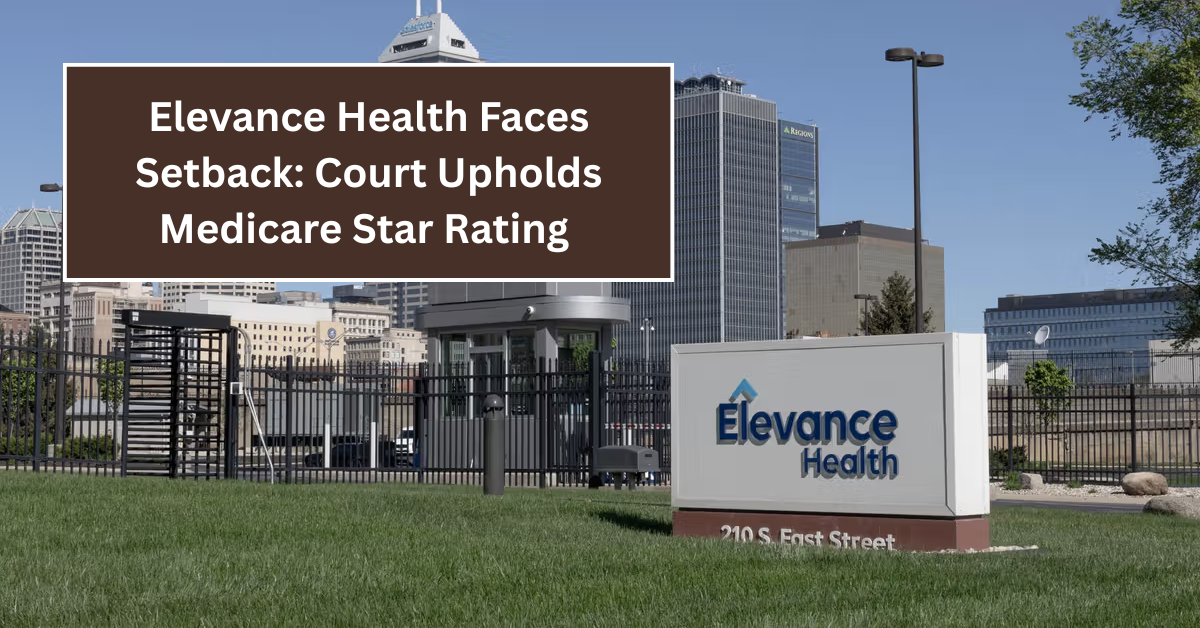The recent legal battle involving Elevance Health and the Medicare star rating system has captured significant attention. Elevance Health challenged the calculation methods used for Medicare star ratings, but the court ruled against them. This decision sheds light on how critical and complex the Medicare rating system is for healthcare providers and beneficiaries.
Understanding this ruling is important for anyone interested in healthcare policies, especially Medicare users and healthcare companies. This article breaks down what happened, why the ruling matters, and what it means for the future of Medicare star ratings.
What Are Medicare Star Ratings?
Medicare star ratings are used to assess the quality of Medicare Advantage and Prescription Drug plans. These ratings, ranging from 1 to 5 stars, help beneficiaries choose among various health plans by showing how well each plan performs. Factors considered include customer service, managing chronic conditions, and drug safety.
The Centers for Medicare & Medicaid Services (CMS) publishes these ratings annually. They influence plan reputation, enrollment numbers, and even financial bonuses for Medicare providers. Hence, these ratings are very important in the healthcare industry.
Why Did Elevance Health Challenge the Ratings?
Elevance Health raised concerns about how CMS calculates star ratings. They claimed that the methods were unfair and distorted the performance results for some health plans. Their legal challenge aimed to change the calculation process to make it more equitable for all providers.
The company argued that the current measures did not accurately reflect plan quality, potentially affecting competition and patient choices. This challenge was seen as an attempt to protect their business interests and ensure their Medicare plans are judged fairly.
What Did the Court Decide?
In the recent ruling, the court upheld CMS’s existing methods for calculating Medicare star ratings. The judge found that CMS acted within its legal authority and that the rating system was based on sound reasoning. Elevance Health’s arguments were not sufficient to overturn the policies.
This decision means that CMS can continue using the current star rating system without changes demanded by Elevance Health. It reinforces the importance of these ratings in maintaining quality standards and transparency in Medicare plans.
Impact of the Ruling on Medicare Users
For Medicare beneficiaries, this ruling means the star ratings they rely on will remain consistent for now. These ratings help consumers make informed choices about which Medicare Advantage or drug plans to select. The system’s stability ensures confidence in the selection process.
However, it is always good for users to review plan details beyond the star ratings. Ratings provide a general idea, but personal needs and preferences also matter when choosing a Medicare plan.
What Does This Mean for Healthcare Providers?
Healthcare providers, like Elevance Health, must continue to compete within the framework established by CMS. Since the court supports the current rating methodology, providers need to focus on improving their services to boost their star ratings.
Higher ratings often translate to higher enrollment and better financial incentives. Providers will likely invest more in patient care, customer service, and quality measures to improve their standings in future ratings.
The Future of Medicare Star Rating Calculations
While this ruling supports the status quo, the Medicare star rating system could still evolve. CMS regularly updates how it measures quality to reflect changing healthcare practices and technology. Stakeholders, including providers and beneficiaries, can expect gradual improvements in the system.
Regulators emphasize transparency and fairness, so future changes will likely focus on refining data accuracy and reducing biases. It’s important for healthcare companies to stay engaged and adapt to these updates over time.
How Can Younger Audiences Benefit from Understanding This Case?
Younger people might not use Medicare now, but understanding how healthcare systems and rating methods work is valuable. As health insurance grows more complex globally, awareness of these issues helps in making better health decisions and advocating for quality care.
Learning about legal challenges like this also shows how policies impact the healthcare landscape. Being informed empowers younger generations to participate in conversations about healthcare quality and reforms.
Conclusion
The court’s decision against Elevance Health’s challenge upholds the Medicare star rating calculation methods, preserving the current evaluation structure. This verdict highlights the importance of these ratings in guiding Medicare users and shaping healthcare service quality.
For Medicare beneficiaries, providers, and policy watchers, the ruling emphasizes stability but also the need for continuous improvement in healthcare quality measures. Staying informed about such developments benefits everyone involved in or connected to the health system.




